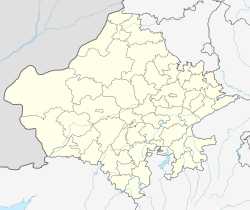Sheikhsar Sukhchainpura | |
|---|---|
village | |
| Coordinates: 28°36′16″N73°58′46″E / 28.604384°N 73.979423°E | |
| Country | |
| State | Rajasthan |
| District | Bikaner |
| Named after | Baba Sheikh Farid |
| Population (2001) | |
• Total | 5,820 |
| Languages | |
| • Official | Hindi |
| Time zone | UTC+5:30 (IST) |
| PIN | 334603 |
| Telephone code | 91-151-XX XX XXX |
| ISO 3166 code | RJ-IN |
| Vehicle registration | RJ-07 |
| Nearest city | Lunkaransar |
State of Shekhsar शेखसर रियासत | |||||||
|---|---|---|---|---|---|---|---|
 | |||||||
| Official languages | Rajasthani and Hindi | ||||||
| Religion | Hinduism (state religion) | ||||||
| Demonym(s) | Sheikhsar | ||||||
| |||||||
| Today part of | Bikaner, Rajasthan, India | ||||||
Sheikhsar (formally known as Sukhchainpura) is a village in Lunkaransar tehsil of Bikaner district in Rajasthan, India. It is situated on the north-east border of the district adjoining Churu and Hanumangarh district boundaries. The village has a population of 5820 out of them are Scheduled Caste(SC) 1182 and Scheduled Tribe(ST) 4. [1]

